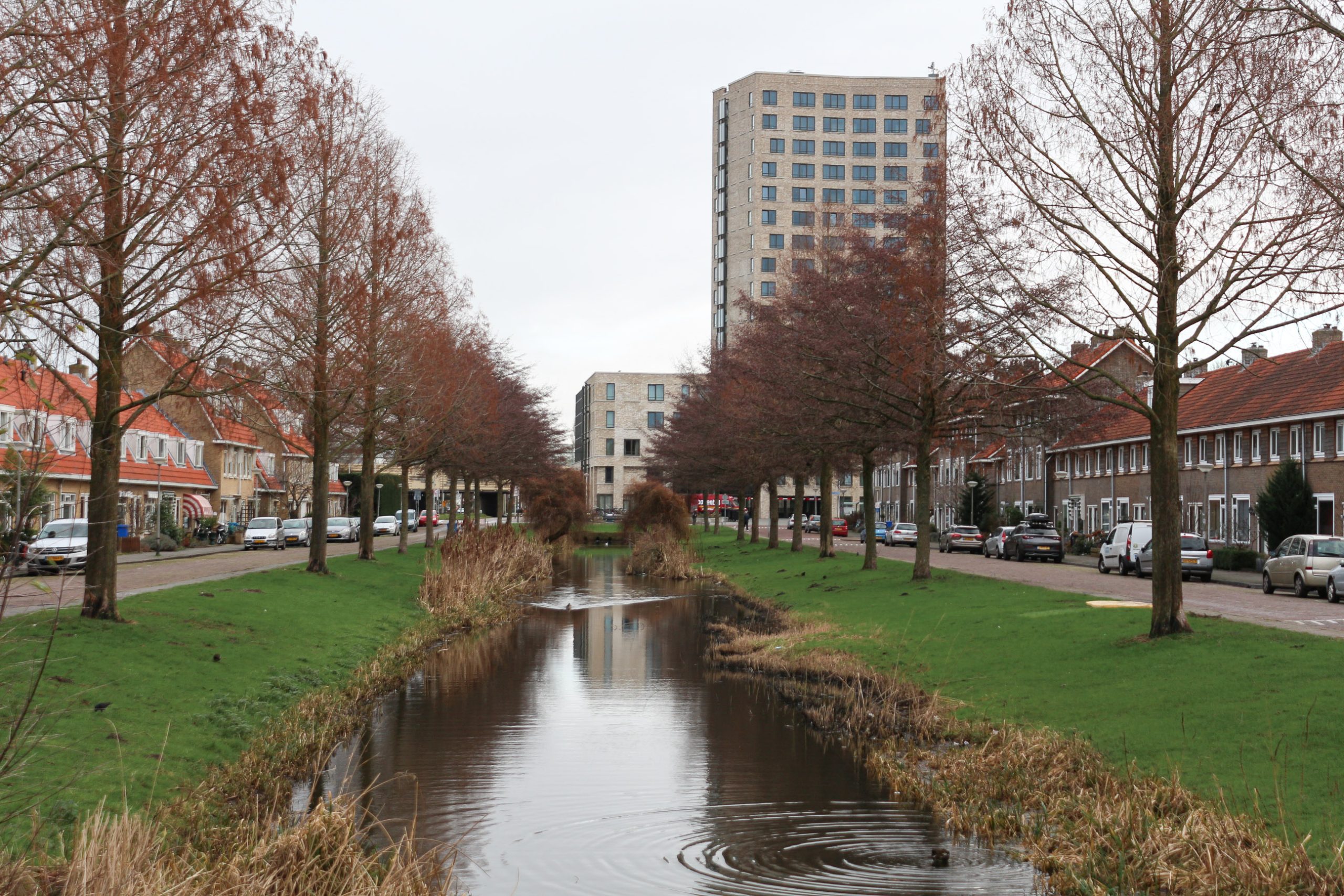In the 20 largest student cities there is a shortage of 27,000 student homes. With the number of international students rising, that number could reach 45,000 by 2030.
Students can rent a studio for up to one year in the newly built Pauwmolen apartment block. (Photo: Justyna Botor)
Thousands of students are looking in vain for accommodation, according to the new National Student Housing Monitor (in Dutch) issued by Kences, the umbrella organisation of student housing providers, and the Ministry of the Interior.
The demand for student housing is expected to grow nationwide to around 500,000. As a comparison, in April 2022 there were 409,000 students living away from home, including international students.
- Last year there were 17,300 students living away from home in Delft. 14,900 of them lived and studied in Delft. 2,400 students were living in Delft, but studying in another city
The government wants to do something about it and today is launching an action plan for 60,000 extra student homes in the next eight years. The means of achieving this include building new housing and encouraging homeowners to rent out rooms.
Better grip
The government also wants to get a better “grip” on the influx of foreign students. The higher education institutions will get more options for controlling the influx of international students “without endangering the benefits of internationalisation”. It is not yet known what these options are. Earlier, the University of Amsterdam announced its intention to experiment with a quota for international students next year.
TU Delft says it strives for ‘a good balance between Dutch and international students’. This applies in particular to programmes that attract many international students, such as Aerospace Engineering and Computer Science & Engineering. Both have a numerus fixus. “Restricting the international intake can help achieve a good balance,” says a TU Delft spokesman.
According to the Student Housing Monitor, currently 15 percent of students in higher education come from abroad, a figure that will rise to 19 percent in the academic year 2029. At TU Delft, 23 percent of all students currently come from abroad.
23,000 extra student homes
The cities have a variety of plans for around 23,000 extra student homes, most of them new builds, but a large number of homes will disappear because of demolition and repurposing.
As an example, Amsterdam wants to build up to around 2,500 new student homes by the year 2030, but some of these will go to students in senior secondary vocational education and to people who have recently graduated. If you take the demolition and repurposing into account as well, the number of homes available for students in Amsterdam will fall by 700.
What is Delft planning to build?
In Delft there are concrete plans to build 1009 student houses (246 in 2023, 238 in 2025 and in 2029 525 units). This is shown in the Student Housing Monitor. It is unclear which locations are involved. The municipality does have the ambition to realise about a thousand student units in the Kabeldistrict and Schieoevers-Noord.
In February, TU Delft council member Marien van der Meer also spoke about plans for student housing on the southern part of the campus. She emphasised that housing is not a task of the university. “But we want to take our responsibility. The pressure of the university on the city is great and we want to contribute to solutions.”
Studios more lucrative
One of the causes of this increasing pressure: more students are living in a studio and fewer in a room. At present, one in four live in a studio, as opposed to 14 percent in 2014. Studios are more lucrative for landlords and investors. Students get an average rental allowance of 333 euros per month for a studio, says Kences director Jolan de Bie. Landlords benefit from this too, as they can ask a higher rent.
A golden opportunity for landlords, a thorn in the eye for students. More than half of the TU Delft students prefer to live with roommates, according to a survey by Delta.
Renting rooms from the student housing providers that are affiliated with Kences costs an average of 280 euros per month under the points system. “For that money we cannot build any new homes or make existing rooms more sustainable.” She wants the rules to be less strict and advocates a rent allowance for roomers.
Rooms better for wellbeing
It also appears that living in accommodation where you share the amenities with housemates can be beneficial to the wellbeing of students. For the first time, this has been studied in the context of the monitor. “Studying is a crucial stage of life, and living in shared accommodation contributes to the social and emotional development of students”, says De Bie.
Another benefit of shared accommodation is that it remains available to students for a longer time because it is less attractive to other target groups. “After a few years, studios that have been built for students are rented for higher prices to other target groups that have a greater spending power. That is hard for students to swallow”, De Bie feels.
HOP, Hein Cuppen / Delta
Translation: Taalcentrum-VU
Do you have a question or comment about this article?
redactie@hogeronderwijspersbureau.nl


Comments are closed.